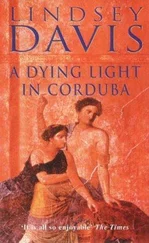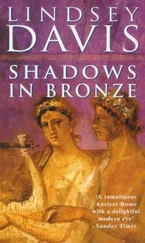She was a buxom piece, that Nymphe, shameless and up for mischief. She kept her house nice and herself smart. Fashionable hair. An air of understated bossiness that feeble men like Erodion found swimmingly attractive. Popular in the neighbourhood, Nymphe had her own style and was comfortable with it. She was also, it suddenly transpired, pregnant.
This had come as a big surprise to Erodion, whose wife in Herculaneum, Salvia, had never given them children despite his vigorous attempts to fertilise her. He thought offspring would give Salvia an interest – that is (so the idiot imagined), she would then be too busy to question what he got up to on his trips, suspiciously sniffing his clothes for strange perfumes, interrogating Larius and Marciana, generally nagging in a wifely way. He was a pain, and Salvia knew it.
Erodion reckoned himself an expert in wives and their ways, due to his frequent observation of two of them. One his, one not. This allowed him to be both personally prejudiced and entirely disinterested when he discussed women. He ran the full gamut of misogynist thought. He enjoyed holding forth, imposing his opinion on others in a merciless, dolorous way. On anyone who put up with it, at least; Larius tended to give him the elbow once he started.
Erodion was a market gardener so he prospered. Campania, with its famous three or four harvests a year, had the most fertile soil and the best climate in Italy. His leeks and cabbages were stupendous, his onions exquisite, his artichokes and asparagus made eaters weep with pleasure. Whenever Erodion came to market in Pompeii – when I’m allowed out of the house , he would mutter bitterly; when the sly worm wriggles off , his wife would say – he went home afterwards with enough money to allay her curiosity, even after he had provided lavish presents for his mistress. Salvia received smaller, fewer presents than the fruiterer’s wife – except a pair of superb snake bracelets, which became hers the time Erodion accidentally mixed up his parcels. Nymphe’s loss, that week.
Even when he came up with the right gift, it was hard to know what Nymphe saw in him, for he was a lax-bellied, big-headed, puffy-faced swine with swollen legs and a pointy nose. It could be she had her own problems. That the fruiterer, Rufius, was so often away himself suggested to Larius that he might be embroiled with someone else’s wife at Nucera or Capua, venues to which Rufius assured Nymphe he must journey frequently to dispose of his own juicy produce in their markets. Since the complex arrangement apparently kept them all happy – Erodion, Nymphe, Rufius, Salvia (well, maybe not Salvia) – Larius merely smiled over it to himself and never commented.
Larius might have laughed about it with Ollia, who of course knew Erodion and the badly neglected Salvia in Herculaneum, but he had not discussed their neighbour’s behaviour lest it gave Ollia ideas about what he, Larius, might be getting up to while he was working away in Pompeii. Why invite trouble? Domestic distrust would be all the more unfair, given that Larius never got up to anything.
Well, pretty well never. And if he did, it was not important.
He knew where Erodion’s lovenest was, so he hastened there, knocked loudly, pushed past a slave who opened up; talking tough, Larius demanded that his neighbour come out at once and hitch up the cart so they could leave town. ‘Otherwise I’ll have to pinch your horse, Erodion!’ It was a knock-kneed, foul-breathed ancient beast; Larius wished Erodion had stopped wasting his money on Nymphe and bought a better one.
But there was chaos in the fruiterer’s house. When Vesuvius blew, Erodion had offered to take Nymphe to safety, Larius discovered; but she’d refused to travel. He’d been gallantly insistent, but she’d cut him off and stated why: she was expecting. Running away from the explosion wasn’t an option.
Erodion innocently assumed the baby was his. Some men would run from such a predicament. Erodion, it turned out, was the kind of reckless sentimentalist who immediately wanted to desert his legitimate wife; he took the instant decision to acknowledge this child, unborn though it was, with Nymphe barely showing yet, and that he, she and their little one should live in bliss.
Nymphe wailed aloud at this terrible idea. Erodion beat his head in frustration that she could not see what was being offered – not merely escape but the subsequent bliss. Neither of the lovers was paying real attention to the erupting volcano, too close for comfort.
Actually, Larius, the father of five if not six, reckoned Nymphe’s condition was obvious. He was astounded Erodion had not noticed before. As for bliss, in Larius’ experience that was a myth, and not the kind of myth he could paint.
Plunged into this daft scenario, thinking fast, Larius suggested that Erodion might be wise to wait before busting up two homes – or even three, if the fruiterer also had a complicated relationship in Nucera or Capua, some fraught affair which might be altered by his dutifully taking on his wife’s baby. Also, said Larius as wisely as if he had in truth been there for the births of those twins, pregnancy involves many dangers and uncertainties; besides, he pointed out, unless Nymphe and her husband had never engaged in intercourse there was no way to be sure who had given her a child. Rufius might genuinely be the one with rights.
No use. Whether from honest good-heartedness or a paternalistic desire for possession of what he saw as his goods, Erodion was still laying claim to this foetus that, a few beats of time before, he had not known about.
‘Stop being an idiot, Erodion. Just get lost,’ said Nymphe. Clearly she was a practical woman. Nymphe had flair. Larius wondered if his neighbour wasn’t the only lover she had been stringing along when her husband went to market.
Erodion was about to burst with stress when a voice – the fruiterer, Larius assumed – was heard at the front door, loudly calling to Nymphe. He must have returned from fruit-selling and fornication (if he did that) and when he saw Vesuvius erupt, he rushed to his house to comfort his expectant wife. ‘I am here; love. You are all right now!’
He had a deep voice, that of a burly man. He sounded forceful. Larius, a veteran bar-brawler when young, judged that Erodion was about to be laid out cold.
If he had come home quietly, Rufius could well have marched in to find an agitated stranger needing to be punched in the teeth. Nymphe, however, seized the moment while Rufius (a well-trained beast domestically) was bent over on the threshhold, taking off his outdoor shoes. He had to beat the soles together to knock off cinders, which fortunately delayed him.
Nymphe opted for Rufius like a loyal wife, or at least one who knew that husbands who follow house-rules are to be treasured. She ordered Erodion to exit by the back way – and get out fast. To make sure, she kicked him from behind, while Larius pulled him from in front. She slammed the door after them and they heard her cooing, ‘O Rufius, I am so glad you’ve come, I am so frightened!’
‘Two-timing bitch!’ snarled Erodion. That was no way to speak of the mother of his child, if it was his, but Larius kept mum.
Other things were on his mind. Now he could haul his sullen neighbour away to prepare the cart for urgent travel. As they whipped up the tetchy old horse to go and collect Marciana, Larius decided to take the reins. Erodion sat sunk in gloom. His life had changed. He had lost his lover, been deprived of his unborn heir; life was brutal, fate was cruel…
‘Erodion, we have worse changes ahead! The whole bloody world’s exploding. We may be going to die today. Shut up, will you?’
‘You’re heartless. I’ve lost everything!’
Читать дальше












